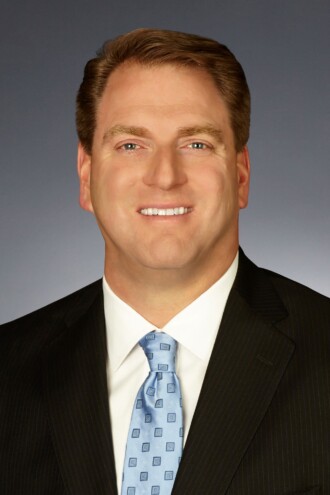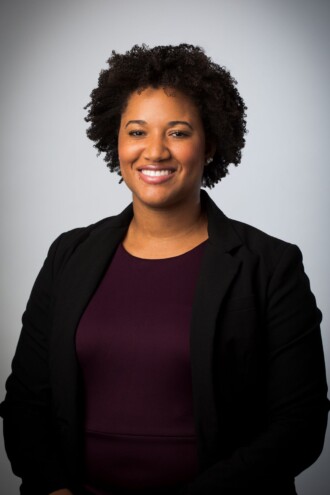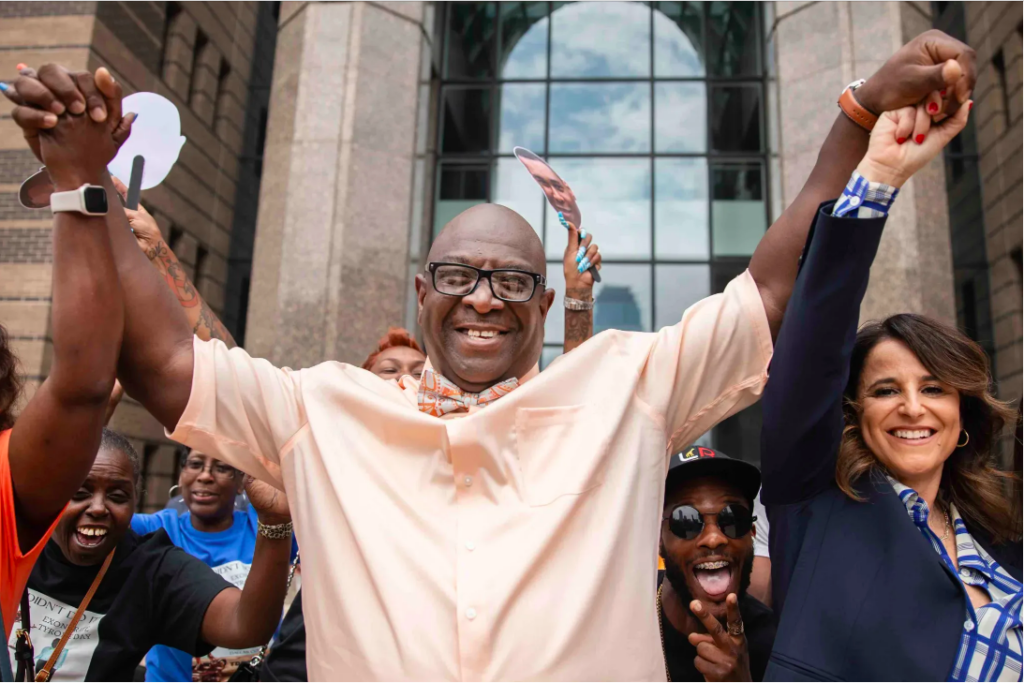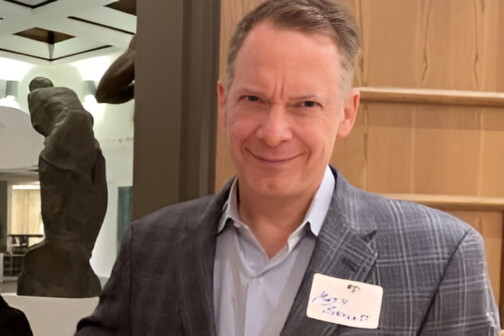Despite losing nearly three decades of his life, Tyrone Day’s innocence was frustratingly simple to prove. He just needed a DNA test.
After being released after 26 years in prison, it took nearly a decade and the combined effort of Weil, Gotshal & Manges LLP, The Innocence Project, the Dallas District Attorney’s Office Conviction Integrity Unit, and Udashen Anton to vacate his plea.
In 1990, Tyrone Day was convicted of sexual assault and sentenced to 40 years in prison. He accepted a plea deal on the advice of his lawyer at the time, who told him he would likely serve just four years of his sentence in prison if he pleaded guilty and could face 99 years in prison if he went to trial. With unaddressed health problems and two young daughters, he accepted the plea. He was imprisoned for 26 years before being paroled and forced to register as a sex offender. He has always maintained his innocence.
“Like so many people accused of crimes, Mr. Day had no real choice. If he did not plead guilty to a crime he did not do, he would have faced a trial in a system stacked against him and risked spending the rest of his life in prison,” says Vanessa Potkin, director of special litigation for the Innocence Project.
In October 1989, a woman called the police near Fair Park. A White, deaf woman with a speech disability said she and her friend were approached by a man who offered them drugs. When she refused, the woman was pulled into a vacant apartment where three unknown males assaulted her. While speaking with the police, Day walked by. The woman identified Day as one of the assailants because of the color of his hat. Officers collected a sexual assault kit, but the woman later said that she never got out of the police car to get a closer look at Day. He was arrested that night.

His choice to plead guilty was based on what Day saw as systematic disadvantages of a White victim and a Black defendant. He wanted to return to his family as fast as possible. Day was released in 2015 after serving 26 years in prison and was forced to register as a sex offender, which meant he couldn’t live in the same house as his wife. He’s hardly alone in pleading guilty to a crime he didn’t commit. The Innocence Project found that, of the more than 3,000 innocent people who have been exonerated since 1989, 26 percent have pleaded guilty.
Throughout his imprisonment, he made requests for DNA testing that were denied. His case was accepted by the Innocence Project in 2004. In 2008, the DA’s Conviction Integrity Unit, or CIU, agreed to test the evidence, which included vaginal swabs and the victim’s clothing. It ruled out Day as one of the assailants.
Although Day was out of prison, he had yet to be exonerated until this year. Paul Genender, a partner in Weil’s complex commercial litigation practice group, and Jenae Ward, an associate in the same group, took up his case and began working with the Innocence Project. The firm guided the case through the local court system to make sure the legwork of the Innocence Project could vacate Day’s plea and prove him actually innocent.
“It was outside of our comfort zone in an area that we don’t do every day, but we are doing something to help someone who otherwise doesn’t have access to our abilities and our firm’s resources,” says Genender, who has been in practice for 29 years. “Is it a requirement of our profession? I think it is. That’s part of what being a lawyer is all about, to help those who don’t have access to legal services.”
Ward worked as a summer associate with the Innocence Project before working at Weil. She knew its sizable backlog of cases but also was aware of the organization’s impact.
“When I got the opportunity to join a case that had been picked up by the Innocence Project, I jumped on that opportunity. Growing up, our parents told us to be servant leaders in our community,” Ward says. “I want to take that into all aspects of my life. When I think of a lawyer, I don’t think of someone who is advocating for their client but is advocating for a better justice system all around.”

Both teams of lawyers worked with the CIU, whose role is to review cases involving allegations of actual innocence and wrongful conviction as a result of systemic errors.
Earlier this year, the legal team sought to vacate Day’s guilty plea based on the grounds of scientific evidence and due process. The Dallas County Criminal Court found that Day’s right to due process was violated and ordered his guilty plea to be vacated. The Texas Court of Criminal Appeals affirmed the findings in April and sent an order to the lower court for exoneration, which took place last month.
Genender says that despite the injustice, Day is not resentful. The experience has been both inspiring and frustrating for the Weil partner. “The fact that it happened when I was 20 years old in the city I grew up in is impactful and upsetting,” he says. “Every bit of satisfaction we get from correcting a serious wrong still leaves the question of how could this have happened in the first place. How many more Tyrone Days are there?”
Today, Day is the system manager and lead horticulturist at Restorative Farms, an urban farming organization he helped found near Fair Park. The South Dallas native studied horticulture at Trinity Valley Community College while incarcerated. He graduated at the top of his class and worked in the prison greenhouse for 19 years. When released, he created Restorative Farms, which teaches residents how to grow their own food. It also donates fresh produce to address the food desert in his neighborhood.
“It took Mr. Day 33 years,” Ward says. “It should not have taken that long, but the fact that he never gave up gives me the inspiration to never give up when we face difficulties.”
Author







